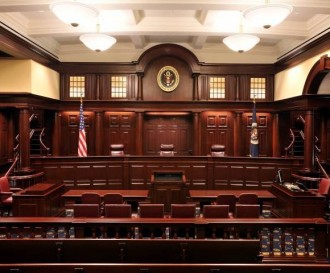October 17, 2016
Claims for a New Abstract Idea are Still Claims to an Abstract Idea, Invalid under §101
In Synopsis, Inc. v. Mentor Graphics Corporation, [2015-1599] (October 17, 2016), the Federal Circuit affirmed summary judgment that claims of U.S. Patent Nos. 5,530,841; 5,680,318; and 5,748,488 were invalid under 35 U.S.C. §101. The Federal Circuit rejected the argument that the claims were directed to eligible subject matter because they relate to complex algorithms used in computer- based synthesis of logic circuits, instead finding that the are directed to the abstract idea of translating a functional description of a logic circuit into a hardware component description of the logic circuit.
The Federal Circuit said that the idea of reviewing a description of certain functions and turning it into a representation of the logic component that performs those functions can be — and, indeed, was — performed mentally or by pencil and paper by one of ordinary skill in the art. The Federal Circuit further said that the claims did not call for the involvement of a computer, and thus they cannot be characterized as an improvement in a computer as a tool.
At Step I of the Alice test, the Federal Circuit said that it continues to treat analyzing information by steps people go through in their minds, or by mathematical algorithms, without more, as essentially mental processes within the abstract-idea category. The justification for this is that computational methods which can be performed entirely in the human mind are the types of methods that embody the “basic tools of scientific and technological work” that are free to all men and reserved exclusively to none.
Synopsis argued that the complexity of the claims indicated that the method could not be performed mentally, but the Federal Circuit said that claims covered methods that could be performed mentally. While Synopsis may be correct that the inventions were intended to be used in conjunction with computer-based design tools, the claims were not confined to that conception, and the §101 inquiry must focus on the language of the claims themselves.
At Step II of the Alice test, the Federal Circuit rejected the argument that the novelty of the claims saved them from being abstract, noting that a claim for a new abstract idea is still an abstract idea, and concluded that the search for a § 101 inventive concept is distinct from demonstrating § 102 novelty. Although conceding that the contours of what constitutes an inventive concept are far from precise, the Federal Circuit said that the claims contain no technical solution. To the extent the claims add anything to the abstract idea (of translating a functional description of a logic circuit into a hardware component description of the logic circuit), it is the use of assignment conditions as an intermediate step in the translation process. But, because the claims are for a mental process, assignment conditions, which merely aid in mental translation as opposed to computer efficacy, are not an inventive concept that takes the claims beyond their abstract idea.




































